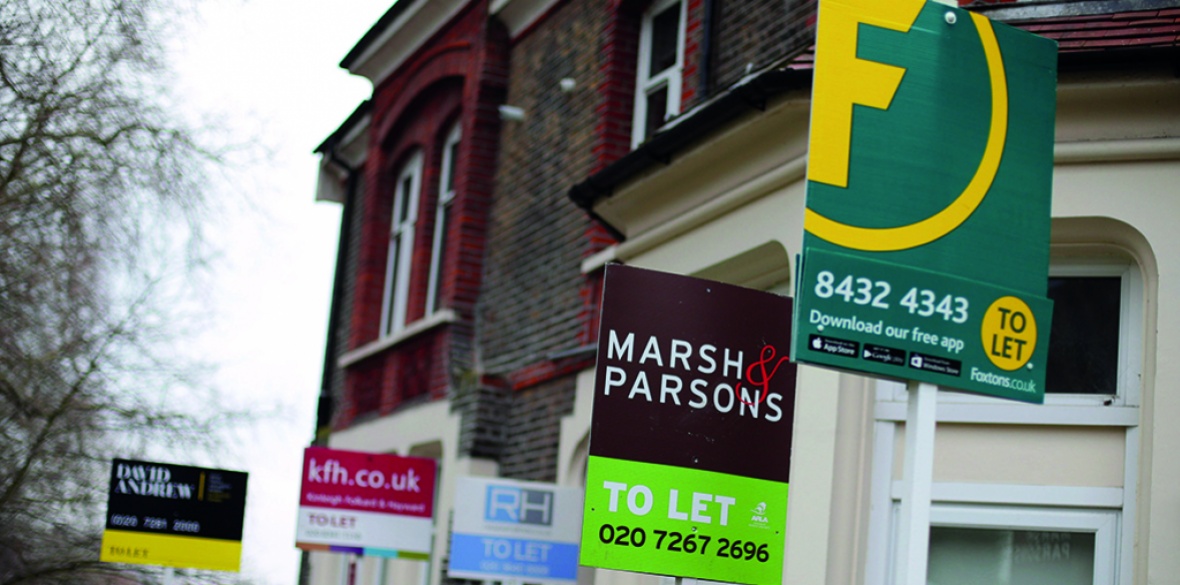This is the last article you can read this month
You can read more article this month
You can read more articles this month
Sorry your limit is up for this month
Reset on:
Please help support the Morning Star by subscribing here
LAST winter, *Anna’s bathroom was suffering from a build-up of damp. The walls had begun to rot, causing the tiles to repeatedly fall off in the shower.
Her landlord refused to deal with the issue. One of Anna’s neighbours in Muirhouse, Edinburgh, had similar issues with damp.
Rather than addressing the state of the home, their landlord suggested that to combat it, they should turn on the heating and open the windows.
Not only did this not fix the problem, it also forced them into fuel poverty; the cost of heating a home in such poor conditions while the windows were open was high.
These cases are not unusual. Substandard living conditions are the norm for many tenants throughout Scotland.
Research by the Scottish government showed that half of homes failed the repair standard and 44 per cent need repairs to a critical element.
A quarter of tenants in Scotland live in fuel poverty, while 57 per cent of private rented sector flats are on Energy Performance Certificate rating D, one of the lowest ratings, meaning they take more energy to be less warm.
The shortcomings of housing across Scotland demonstrably affect the country’s carbon emissions, 20 per cent of which come from buildings.
Housing and the built environment represents one of the biggest opportunities we have to organise to combat climate change.
Working on these will have knock-on beneficial effects, whether that be on tenants’ energy bills, tenants’ health or new jobs. In this way, housing is just one of the many examples where social justice is climate justice.
These cases are so frequent that they have become the norm, but unionised tenants insist that there are alternative models that are better for our health, homes and climate.
People live in colder climates in better-insulated homes. In Sweden, the average household’s energy bill is lower than in the UK, despite it often being -30 outside.
High-quality insulation and air-tight construction methods ensure that homes preserve heat and significantly reduce energy consumption.
In places like New York, landlords are obliged to keep homes at a certain temperature.
Scotland needs to see similar legislation that puts the onus on landlords to ensure that tenants’ homes are fit for habitation.
Damp and mouldy flats are not the tenants’ fault, it is time that the law recognised it this way.
Tenants urgently need a bold plan of refurbishment able to improve the energy efficiency of their housing, cut fuel bills and contribute to reducing Scotland’s carbon footprint. In this context, Living Rent is campaigning for a Just Transition for Tenants.
Living Rent is calling on the Scottish government to act to ensure that insulated, energy-efficient homes are built or retrofitted throughout the country to contribute to combatting the climate crisis and to protect tenants from astronomical fuel costs.
First, in order to achieve this, housing needs to be improved. We need an updated and independently managed “Repairing Standard,” better enforcement, and serious penalties for landlords who keep tenants in poorly maintained or energy-inefficient housing.
New builds must prioritise insulation, safe materials, accessibility and locations that do not put tenants at risk of floods or other climate threats.
Second, a just transition for tenants means that the cost of refurbishments isn’t shifted onto tenants and that they don’t result in “reno-victions” — evictions that take place either because tenants are priced out of their homes or because they are evicted to enable refurbishment.
Landlords shouldn’t be able to force out tenants using green refurbishment as an excuse, or through punitive rent increases to “make up” for the costs of refurbishment.
Finally, any plans to make rented housing more energy-efficient need to be tied to a points-based system of rent controls and greater protections for tenants.
Points-based rent controls that tie maximum rent to the quality, standard and energy efficiency of the property will ensure that tenants do not bear the burden of environmental refurbishments while ensuring financial incentives for landlords to make green improvements to their properties.
Living Rent’s list of demands was put together by the true experts — tenants. It is only through democratic participation in decision-making that tenants will achieve housing justice and climate justice.
Individual households and communities must be consulted and approve of any changes to their homes or lived environments. As a union, Living Rent is committed to building power for tenants so that they cannot request but demand these necessary measures.
*Names changed to preserve anonymity










